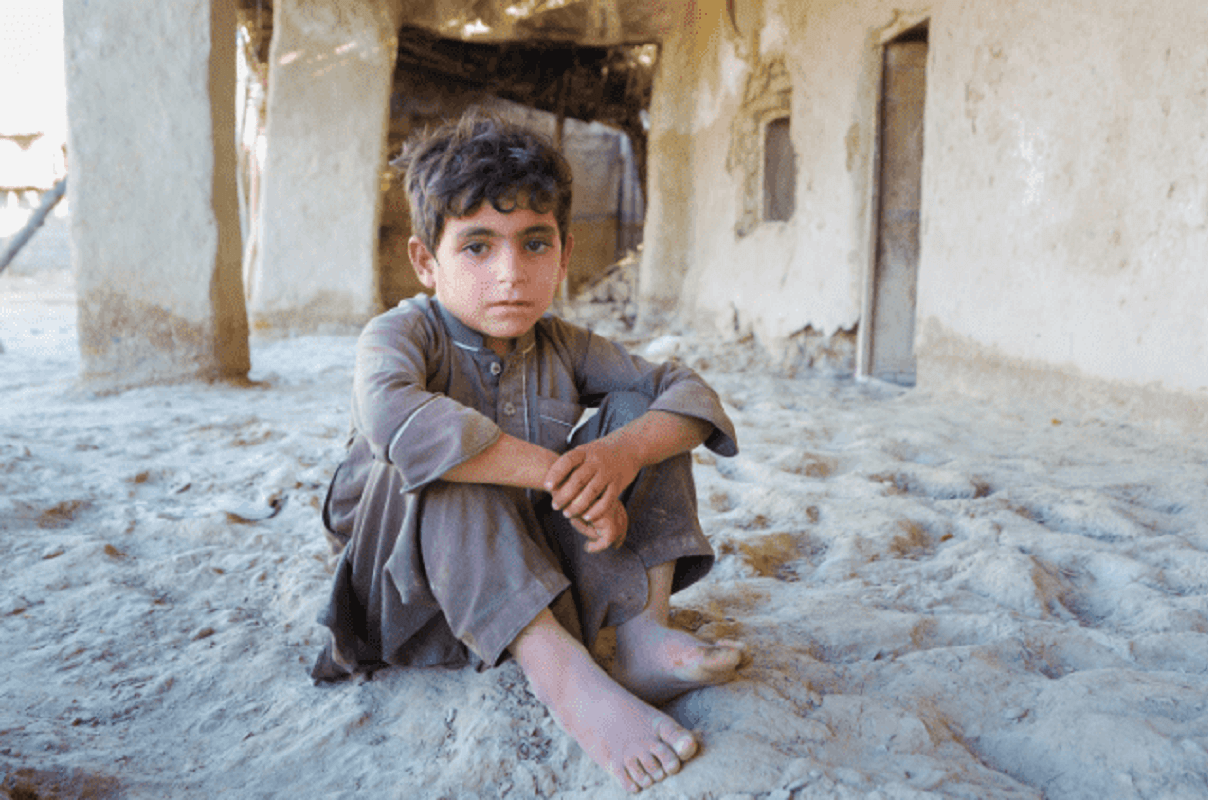Flooded Pakistan, Symbol of Climate Injustice
Zareen Zahid Qureshi | 04 February 2023
The $9 billion promised to Pakistan is only a sticking plaster until the west acknowledges the dire climate legacy in south Asia.
This month the United Nations secretary-general, Antonio Guterres, affirmed that south Asians were 15 times as likely to die from the effects of climate change as elsewhere in the world. After all, nine of the ten worst cities for air pollution are in south Asia, where—as a result—two million die prematurely each year.
Pakistan is still reeling from the catastrophic summer floods, which submerged an area the size of the United Kingdom in water, affecting over 33 million Pakistanis. Nearly 450 officials from around 40 countries—as well as international financial institutions and private donors—pledged over $9 billion in aid this month. But this humanitarian disaster has not taken place in a vacuum.
Escalating emergency
For decades, western policies have disproportionately accelerated the climate crisis across south Asia. For example, illegal export of plastic rubbish from the world’s richest nations to the region has culminated in a waste crisis rooted in blatant colonial exploitation. This is not only responsible for polluting the seas and killing wildlife but is driving a rapidly escalating regional health emergency caused by hazardous air pollution.
Ultimately, rich nations’ failure to reach a consensus on emission reductions is exposing the world’s most climate-vulnerable countries to unprecedented natural disasters. The UN estimates that eight million people are still exposed to flood water in Pakistan, particularly in the worst-hit provinces of Sindh and Balochistan, which is also suffering acute food and medicine shortages as well as fatal flood-related diseases.
Following the $9 billion pledge, global media were quick to claim that this paved the way for a new model of climate-emergency aid for poorer nations. Yet when the carbon emissions of the world’s richest 1 per cent are more than double those caused by the poorest half of humanity, the global south remains far away from climate justice.
Authentic voices excluded
The west still struggles to include authentic voices from the global south in its deliberations. Take the World Economic Forum, which met this month and was criticised for ignoring the climate emergency and sidelining the concerns of the global south.
‘Davos is of course dominated by a wealthy group of people … It’s not hard to be cynical about the prospects for climate justice,’ said Vanessa Nakate, a Ugandan climate activist. Although leaders from indigenous communities, non-governmental organisations and faith-based groups—including young climate activists such as her—represented civil-society voices, alongside the business and political elites, at the WEF, much more needs to be done to amplify their voices.
Also this month, I trained climate activists from 20 countries at the world’s first international youth interfaith programme on climate change. Organised in partnership with Duke University and the global interfaith coalition Faith For Our Planet, such initiatives can fundamentally shift the climate debate towards a more just framework.
Chaired by Mohammad bin Abdul Karim Al-Issa, secretary general of the world’s largest Islamic NGO, the Muslim World League, this coalition of climate activists represents some of the global south’s most climate vulnerable countries—including Pakistan, India and Bangladesh—giving a voice to those who have historically remained on the sidelines of the global climate movement.
Crucial role
When it comes to the Pakistan floods, we all have a role to play—including, of course, the Pakistan government. The country must earmark aid for long-term climate policies which promote major social and behavioural change. Pakistan is a country rooted in religious ideals, where faith must be leveraged to win over hearts and minds. This is why the Duke Fellowship and civil-society voices are so valuable.
But the west has a crucial role to play too. Instead of offering billions as a sticking plaster in the aftermath of natural disasters, including wealthy European countries it must acccept accountability for its climate legacy in south Asia. After all, the Pakistan floods were an indirect result of western ignorance of the region’s plight. And as monumental as $9 billion sounds, it is a far cry from the estimated $40 billion it will take to rebuild Pakistan.
Guterres urged the international community to be ‘honest about the brutal injustice of loss and damage suffered by developing countries because of climate change’. He is right that the global financial system urgently needs radical reform, finally to place the world’s most climate-vulnerable nations front and centre. Such reform must bring preventive, not merely reactive, measures.
Nor should this divert public attention from where it belongs. This crisis, as with many others in the global south, was western-made.
Zareen Zahid Qureshi is the nationwide manager of Pakistan’s Poverty Eradication Initiative. She is also an advisory board member to Faith For Our Planet, an interfaith climate NGO. She has been instrumental in co-ordinating flood relief efforts in Pakistan’s worst-hit regions.
This article was originally published on Social Europe.
Views in this article are author’s own and do not necessarily reflect CGS policy.
